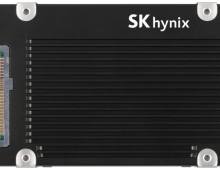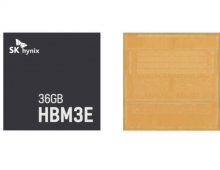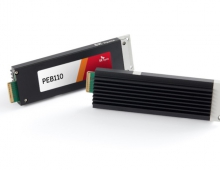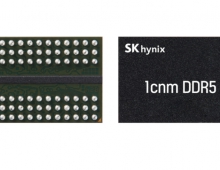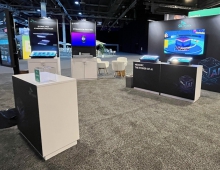
U.S. District Court Enters Final Judgment for $397M Against Hynix in Favor of Rambus
Rambus today announced that the U.S. District Court for the Northern District of California has entered final judgment in the Hynix Semiconductor matter.
Judgment was entered against Hynix in the amount of approximately $134M for infringement through December 31, 2005 and approximately $215M for its infringement from January 1, 2006 through January 31, 2009. In addition, the Court awarded about $48M in pre-judgment interest to Rambus.
The Court also ordered Hynix to pay Rambus royalties on net sales after January 31, 2009 and before April 18, 2010 of 1% for SDR SDRAM and 4.25% for DDR SDRAM memory devices. The latter rate applies to DDR, DDR2, DDR3, GDDR, GDDR2 and GDDR3 SDRAM devices, as well as DDR SGRAM devices. Damages and the compulsory license apply to U.S. infringements of the patent claims in suit. Execution of the Court?s judgment is stayed for 14 days in order for Hynix to file a motion under Rule 62 seeking relief from final judgment pending an appeal.
"We are pleased with the Court?s decision and are gratified by the tremendous time and energy the Court has dedicated to this matter," said Thomas Lavelle, senior vice president and general counsel at Rambus. "Though this case has been long and arduous, we remain steadfast in our commitment to seek fair compensation for the use of our patented innovations."
Hynix disagrees with the judgment and the company may pursue its appeal to the Federal Circuit.
"This ruling conflicts with the contrary judgments of United States District Courts in Delaware and Virginia. Patents should not be enforceable in one part of the United States and not in another. In addition, the Court interpreted Rambus?s patents very broadly, which Hynix believes is incorrect under the current law. Importantly the United States Patent and Trademark Office has recently issued several rulings finding Rambus?s patents invalid and improperly issued," Hunix said in a statement today.
"Rambus?s request bar Hynix from selling DRAMs in the United States was denied and Hynix will seek a stay of the damages judgment while the appeal is pending."
This case was originally filed by Hynix against Rambus in August 2000. The U.S. District Court for the Northern District of California split the case into three separate phases with Rambus subsequently prevailing in all three phases. During the first phase, Hynix alleged that Rambus? patents were invalid based on the doctrine of unclean hands. The Court issued its Findings of Fact and Conclusions of Law in Rambus? favor in January 2006. In ruling that "Hynix?s unclean hands defense fails," the Court concluded that "Rambus did not engage in unlawful spoliation of evidence." The Court also found that the "evidence also does not demonstrate that Rambus targeted any specific document or category of relevant documents with the intent to prevent production in a lawsuit such as the one initiated by Hynix," and that the evidence "does not show that Rambus destroyed specific, material documents prejudicial to Hynix?s ability to defend against Rambus?s patent claims." The Court reaffirmed its finding of no spoliation when it denied Hynix?s motion for reconsideration in February 2009.
The second phase dealt with Rambus? allegations that Hynix memory products infringed its patents. In April 2006, a jury unanimously found that all ten Rambus patent claims at issue in that trial are valid and infringed by Hynix memory products. The jury award of approximately $307M in damages for U.S. sales of infringing Hynix products through December 31, 2005, was subsequently reduced by the Court to approximately $134M.
In the third and final phase of the case, Hynix (together with Micron and Nanya) tried its remaining claims and defenses against Rambus including antitrust and fraud claims based on Rambus? participation in a standard-setting organization called JEDEC. In March 2008, a jury found Rambus had acted properly during its participation in JEDEC in the early 1990s. The Court also recently rejected Hynix?s (and Micron?s and Nanya?s) equitable JEDEC-related claims and defenses, finding that the evidence supported the jury?s finding "that JEDEC members did not share a clearly defined expectation that members would disclose relevant knowledge they had about patent applications or the intent to file patent applications on technology being considered for adoption as a JEDEC standard." The Court further found that "not only did Rambus not have an obligation to disclose pending or anticipated patent applications, it had sound reasons for not doing so."
The Court also ordered Hynix to pay Rambus royalties on net sales after January 31, 2009 and before April 18, 2010 of 1% for SDR SDRAM and 4.25% for DDR SDRAM memory devices. The latter rate applies to DDR, DDR2, DDR3, GDDR, GDDR2 and GDDR3 SDRAM devices, as well as DDR SGRAM devices. Damages and the compulsory license apply to U.S. infringements of the patent claims in suit. Execution of the Court?s judgment is stayed for 14 days in order for Hynix to file a motion under Rule 62 seeking relief from final judgment pending an appeal.
"We are pleased with the Court?s decision and are gratified by the tremendous time and energy the Court has dedicated to this matter," said Thomas Lavelle, senior vice president and general counsel at Rambus. "Though this case has been long and arduous, we remain steadfast in our commitment to seek fair compensation for the use of our patented innovations."
Hynix disagrees with the judgment and the company may pursue its appeal to the Federal Circuit.
"This ruling conflicts with the contrary judgments of United States District Courts in Delaware and Virginia. Patents should not be enforceable in one part of the United States and not in another. In addition, the Court interpreted Rambus?s patents very broadly, which Hynix believes is incorrect under the current law. Importantly the United States Patent and Trademark Office has recently issued several rulings finding Rambus?s patents invalid and improperly issued," Hunix said in a statement today.
"Rambus?s request bar Hynix from selling DRAMs in the United States was denied and Hynix will seek a stay of the damages judgment while the appeal is pending."
This case was originally filed by Hynix against Rambus in August 2000. The U.S. District Court for the Northern District of California split the case into three separate phases with Rambus subsequently prevailing in all three phases. During the first phase, Hynix alleged that Rambus? patents were invalid based on the doctrine of unclean hands. The Court issued its Findings of Fact and Conclusions of Law in Rambus? favor in January 2006. In ruling that "Hynix?s unclean hands defense fails," the Court concluded that "Rambus did not engage in unlawful spoliation of evidence." The Court also found that the "evidence also does not demonstrate that Rambus targeted any specific document or category of relevant documents with the intent to prevent production in a lawsuit such as the one initiated by Hynix," and that the evidence "does not show that Rambus destroyed specific, material documents prejudicial to Hynix?s ability to defend against Rambus?s patent claims." The Court reaffirmed its finding of no spoliation when it denied Hynix?s motion for reconsideration in February 2009.
The second phase dealt with Rambus? allegations that Hynix memory products infringed its patents. In April 2006, a jury unanimously found that all ten Rambus patent claims at issue in that trial are valid and infringed by Hynix memory products. The jury award of approximately $307M in damages for U.S. sales of infringing Hynix products through December 31, 2005, was subsequently reduced by the Court to approximately $134M.
In the third and final phase of the case, Hynix (together with Micron and Nanya) tried its remaining claims and defenses against Rambus including antitrust and fraud claims based on Rambus? participation in a standard-setting organization called JEDEC. In March 2008, a jury found Rambus had acted properly during its participation in JEDEC in the early 1990s. The Court also recently rejected Hynix?s (and Micron?s and Nanya?s) equitable JEDEC-related claims and defenses, finding that the evidence supported the jury?s finding "that JEDEC members did not share a clearly defined expectation that members would disclose relevant knowledge they had about patent applications or the intent to file patent applications on technology being considered for adoption as a JEDEC standard." The Court further found that "not only did Rambus not have an obligation to disclose pending or anticipated patent applications, it had sound reasons for not doing so."

